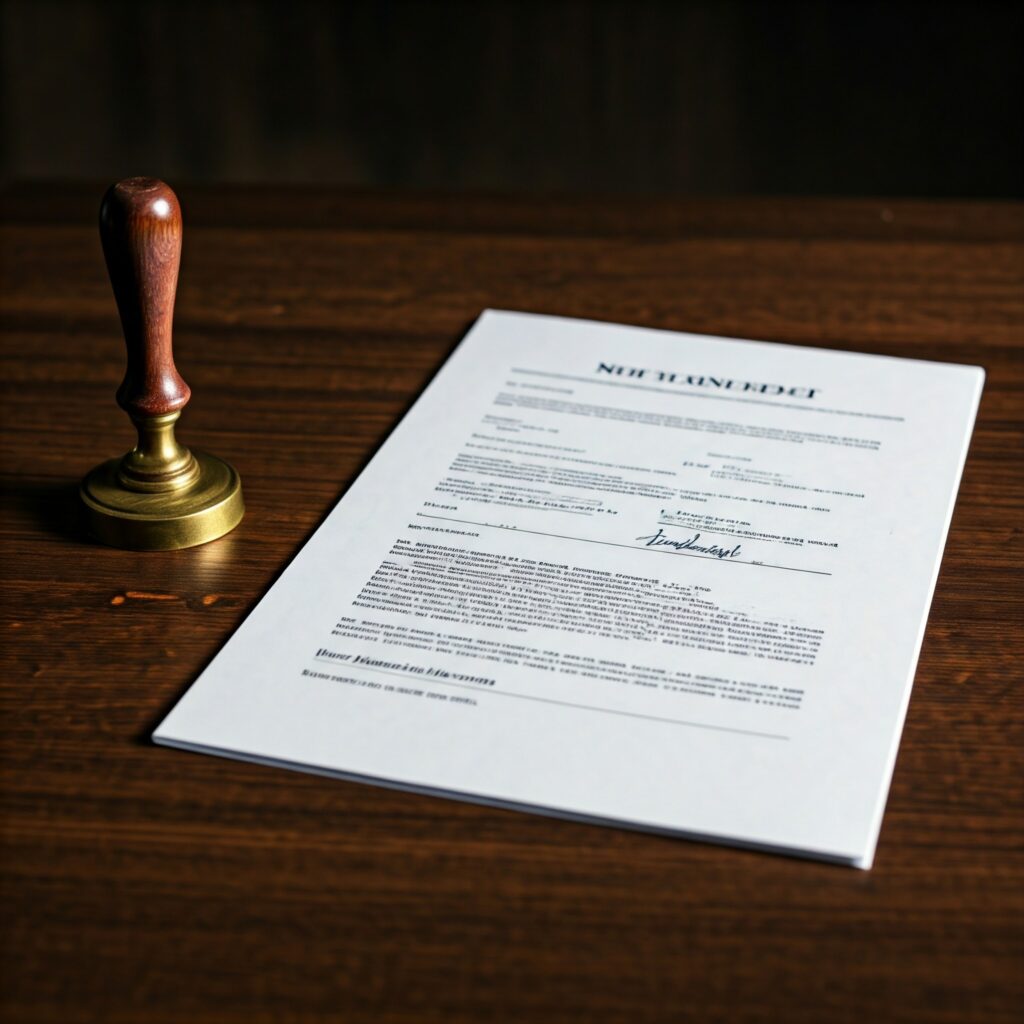
A notarized translation is a document that has been officially certified by a notary public. This certification confirms the accuracy and reliability of the translation, making it legally stand out. Notarized translations are often required for official purposes, such as immigration, legal proceedings, and academic applications.
What is a Notary Public?
A notary public is a public officer appointed by a state government to serve as an impartial witness during notarizations. Their primary role is to verify the identity of individuals signing important documents and ensure that they are signing willingly and knowingly.
In simple words, a notary public is like a special person who makes sure people are telling the truth when they sign important papers. They check if the person signing is really who they say they are and if they want to sign the paper.
What is the Process of Notarizing a Translation?
- Professional Translation: The document is translated by a qualified translator who is proficient in both the source and target languages.
- Notary Public Certification: The translated document is then presented to a notary public. The notary verifies the translator’s identity and qualifications.
- Notarial Seal and Signature: The notary public affixes their official seal and signature to the translated document, certifying its accuracy.
Why is Notarized Translation Important?
- Legal Validity: Notarized translations are recognized by government agencies and legal institutions worldwide. Notarized translations are like official stamps that say, “This is real!” Governments and important places trust them.
- Enhanced Credibility: The notary’s certification adds credibility to the translated document.
- Compliance with Regulations: Many countries require notarized translations for immigration, visa applications, and other official processes.
Common Uses of Notarized Translations
- Immigration and Visa Applications: Birth certificates, marriage certificates, diplomas, and other official documents often require notarized translations.
- Legal Proceedings: Court documents, contracts, and legal agreements may need to be translated and notarized.
- Academic Applications: Transcripts, diplomas, and other academic documents may require notarized translations for international study or employment.
- Business Transactions: Business contracts, financial statements, and other legal documents may need to be translated and notarized for international business operations.
How to be a Notarized Translator?
Becoming a notarized translator is a great way to specialize yourself in the legal niche. As a notarized translator you will be able to certify the accuracy of translated documents in a legal capacity.
Here’s a step-by-step guide to help you on your journey to becoming a notarized translator.
1. Acquire Language Proficiency
- Master the Source and Target Languages: Develop a deep understanding of both languages, including grammar, syntax, and cultural nuances. The nature of a notarized translation service is that it requires 100% accuracy. Mastering the working language pair at a higher level is absolutely necessary to certify a translation is accurate.
- Consider Language Certification: Obtain language certifications like the TOEFL or IELTS to validate your language skills.
2. Gain Translation Experience
Gain practical experience in translating various types of documents. A great way to earn experience is to freelance your service or work in-house for a translation agency.
3. Obtain Necessary Certifications
- Research Local Requirements: Understand the specific certification requirements in your jurisdiction.
- Complete Required Courses: Enroll in translation courses or workshops to enhance your skills.
- Pass Certification Exams: Take and pass any required certification exams.
4. Notarization Process
- Contact a Notary Public: Reach out to a notary public in your area.
- Provide Required Documents: Prepare your identification documents and translation certifications.
- Undergo Verification: The notary public will verify your identity and qualifications.
- Obtain Notarization Stamp: The notary public will stamp and sign your translated documents.
5. Maintain Professionalism and Ethics
- Adhere to Ethical Standards: Follow industry codes of ethics and confidentiality.
- Stay Updated: Continuously update your knowledge of both languages and translation techniques.
- Network with Other Professionals: Build relationships with other translators and industry experts.
To be a notarized translator you need dedication, hard work, and a commitment to accuracy and professionalism. Be mindful that a notarized translation is a crucial document for various official purposes. As a notarized translator, prioritize accuracy to ensure that your translated documents are legally recognized and accepted.


